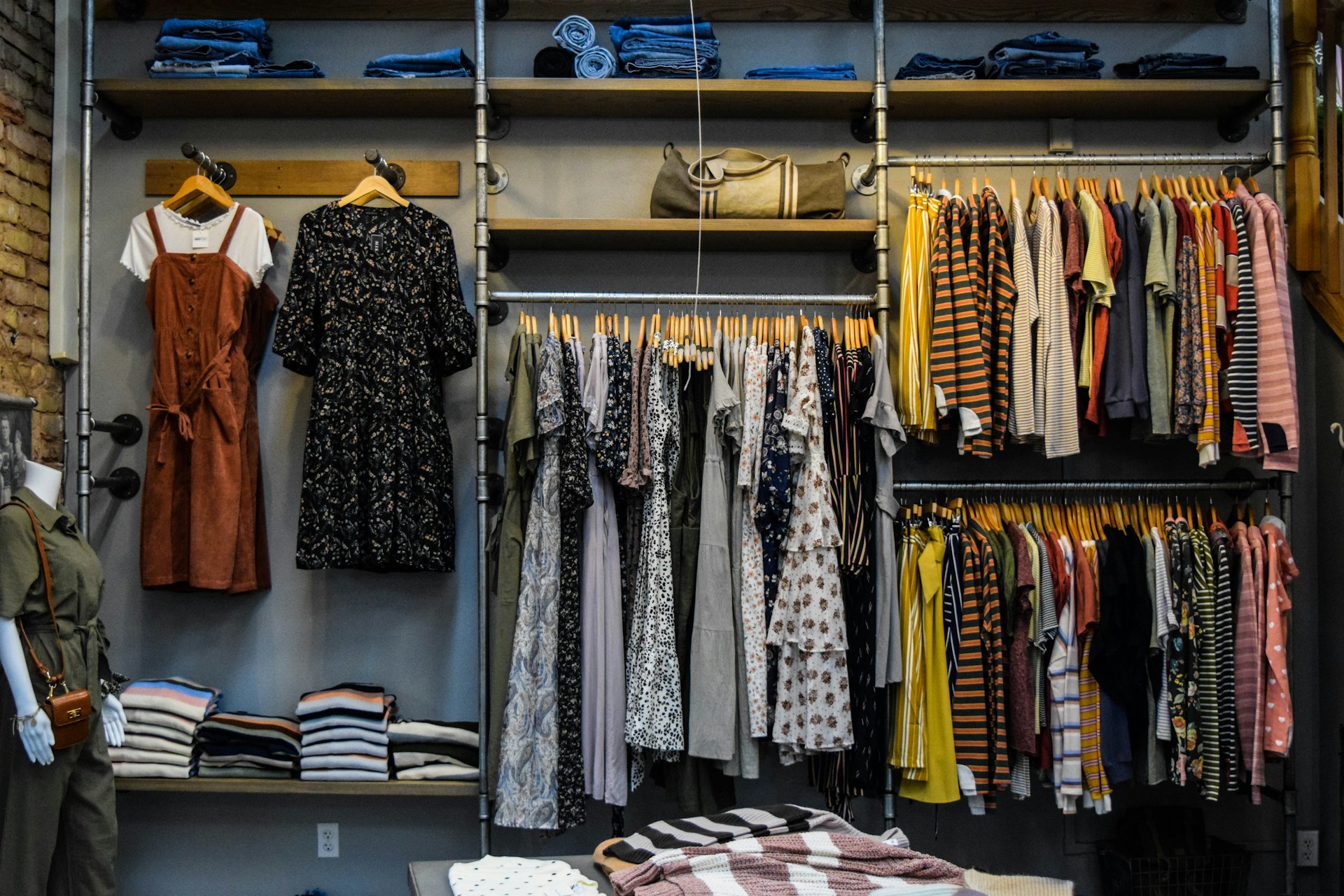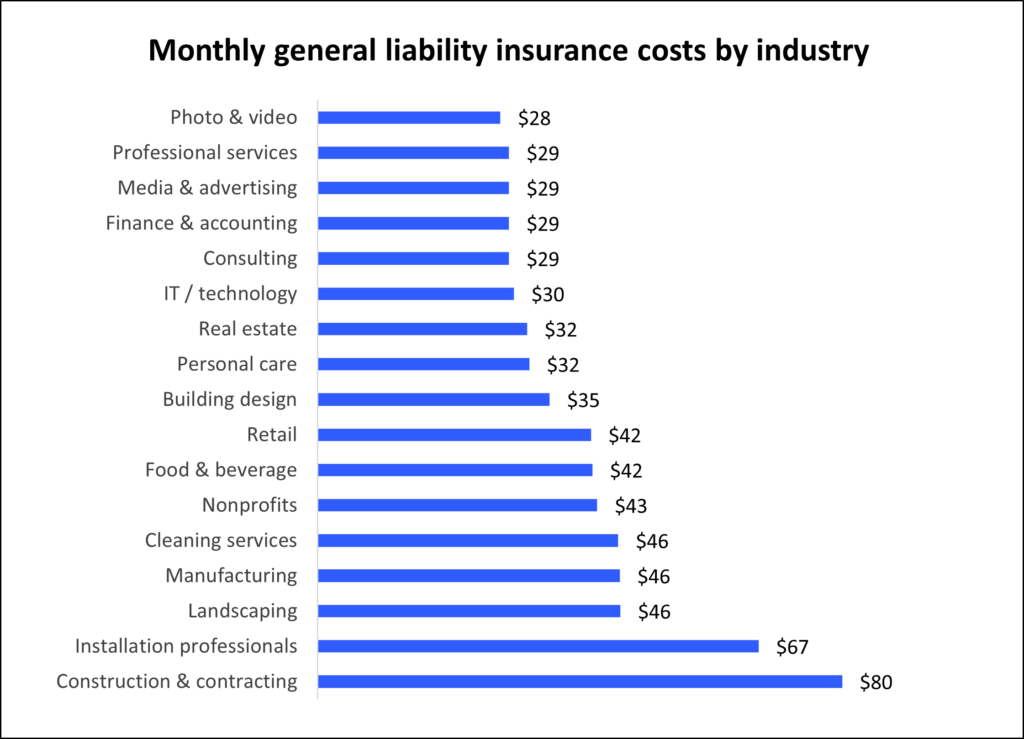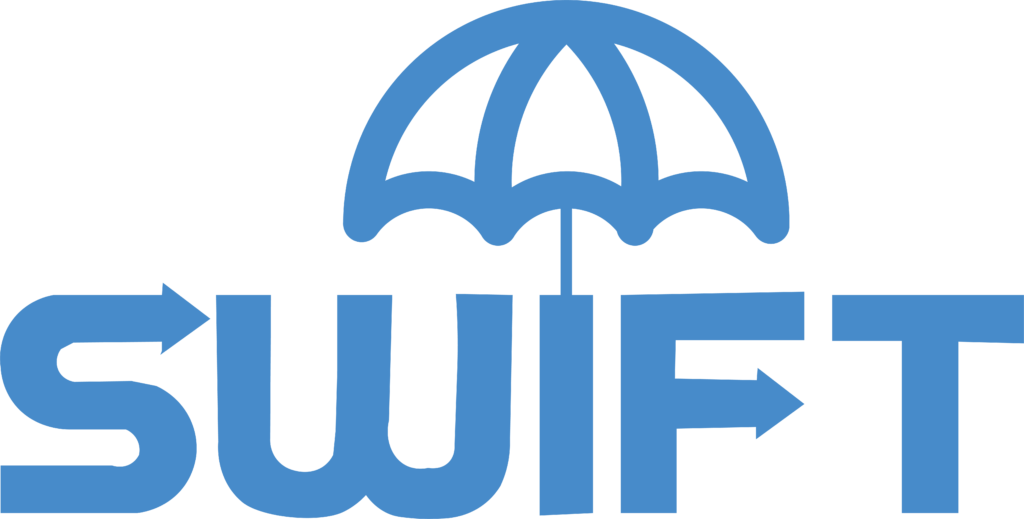Choose from the nation's best insurance providers

General liability insurance
General liability insurance
General liability insurance covers common risks like customer injuries, customer property damage, and advertising injuries. It protects your business from the high costs of lawsuits and helps you qualify for leases and contracts.
Why is general liability insurance important for small businesses?
General liability insurance protects against the most common risks of running a business. It’s typically the first policy purchased by small business owners.
This business liability insurance coverage pays for legal costs if a customer slips and suffers an injury at your business, or if you accidentally damage someone’s property. This policy also covers personal and advertising injuries, such as libel and copyright infringement.
Small business owners often need general liability insurance to fulfill requirements for a lease, loan, or contract. For example, a landlord might ask to see a certificate of insurance when you sign a commercial lease.
General liability coverage is a crucial component of risk management for small businesses, and it’s affordable. The average premium is only $42 per month for Insureon customers.

General liability coverage is
essential if your business:
- Has a location that is open to the public
- Works closely with customers or clients
- Handles client property
- Rents or owns commercial property
- Advertises its services in print or online
What does general liability insurance cover?
General liability insurance provides coverage for common liability claims from third parties (people outside your business).
This business insurance policy covers legal defense costs if someone sues over a bodily injury, property damage, or advertising injury. Your policy can pay for everything from hiring a lawyer to court-ordered judgments and settlements.
Specifically, your commercial general liability (CGL) policy provides coverage for:
Third-party bodily injuries
If a customer is hurt in an accident at your business, general liability insurance can help pay for medical expenses. It also covers legal expenses if a customer sues over their injury.
Third party property damage
A general liability insurance policy can cover expenses when your business accidentally damages or destroys another person’s property.
Product liability
Not all property damage or customer injuries happen inside a store. If a business manufactures, distributes, or sells products, it can be sued over the harm its products cause to people or property.
Most commercial general liability (CGL) policies include product liability insurance. This type of coverage helps pay for lawsuits and other financial losses related to defective products, labeling errors that harm customers, and other product risks.
Personal injuries and advertising injuries
If someone sues a business owner or employee over slander, libel, invasion of privacy, or copyright infringement, general liability insurance can help pay for legal defense costs and any resulting settlement or judgment.
How much does general liability insurance cost?

The cost of general liability insurance is different for every business. Insurers look at several factors when calculating general liability insurance premiums, such as:
- Industry and risk factors
- Location
- Number of employees
- Coverage limits
- Claims history
General liability insurance typically costs $42 per month, based on the average for Insureon’s small business customers. And 29% pay less than $30 per month for their policies.
Who needs general liability insurance?
Most companies need general liability insurance, especially if you rent or own an office or commercial space. Any small business that interacts with clients and customers will benefit from general liability insurance, even if you work from home.
This insurance policy can keep your company financially stable if you’re sued by a customer or competitor. Because general liability insurance provides such important coverage, most small business owners buy the policy right after they start their business.
Is general liability insurance required by law?
Generally not, but states may mandate it for certain industries like construction and cannabis. Depending on your type of business, you may also need coverage to get a professional license in your state.
While commercial general liability (CGL) insurance isn’t typically required by law, it’s still likely required by your landlord, mortgage company, business partners, or clients. For example, Amazon sellers are required to carry coverage when their sales reach a certain threshold.
A landlord or client may ask your business to show an ACORD certificate of insurance as proof of your general liability insurance coverage. This document verifies that your business can handle any personal injury or property damage lawsuits.
Most importantly, the certificate gives your property manager, bank, or customer peace of mind that they won’t be stuck paying the costs of a lawsuit against your company.
Find out more about when general liability insurance is required.
Do independent contractors need general liability insurance?
Like any small business owner, independent contractors and even subcontractors can be sued and held liable for customer injuries, customer property damage, or advertising injuries.
While contractors who don’t have a physical location or expensive equipment probably don’t need a business owner’s policy (BOP) or commercial property insurance, they will still benefit from general liability insurance.
If you don’t want to purchase a commercial general liability (CGL) policy, you can ask your clients to add you to their policies as an additional insured. This will cover you for as long as you work for the client who insures you.
Keep in mind that your clients might pay a higher insurance premium if they add you to their general liability policies, and your coverage will end once the contract expires.
Do I need general liability insurance for my LLC?
Yes. Even though a limited liability company (LLC) protects your personal assets, you still need general liability insurance to protect your business.
A slip-and-fall injury or a dropped laptop could financially devastate your business if the customer sues. That’s especially true for smaller LLCs that don’t have a lot of resources to draw upon during a lawsuit.
As with other types of businesses, you might need general liability coverage and other LLC insurance policies to sign leases and contracts, or fulfill other requirements.
Top professions that need general liability insurance
























How do I get proof of general liability insurance?
You can usually get proof of insurance online the same day you apply for quotes with Insureon.
Traditional insurance agents can take several weeks to send a certificate of general liability insurance to new customers, which could be an issue for a policyholder who needs immediate proof of insurance to sign a pending contract or lease.
To get coverage quickly, fill out Insureon’s free online application. You’ll need to provide a little basic information about your business, such as:
- Business name
- Business operations
- Number of employees
- Estimated annual revenue
- Years of industry experience
What does general liability insurance not cover?
While general liability insurance is crucial for most small businesses, it does not provide all the protection you need. For instance, your policy does not include coverage for:
Professional mistakes and breach of contract
Professional liability insurance covers lawsuits related to professional negligence. That includes undelivered services, missed deadlines, breach of contract, and other errors and oversights.
This policy can apply to many professions, including architects, consultants, interior designers, real estate professionals, tax preparers, and more. In other fields, you might see it referred to as errors and omissions insurance (E&O) or malpractice insurance.
Employee injuries
Workers’ compensation insurance is the policy that covers medical expenses and disability benefits for employees who are injured on the job. It’s required in most states for businesses that have employees.
Labor-intensive businesses depend on this policy, but it’s also beneficial for accounting firms, computer repair professionals, house cleaners, photographers, and more. Even sole proprietors benefit from coverage, as personal health insurance can deny claims when an injury is related to your job.
Business property damage and theft
A business owner’s policy helps pay for replacement of stolen business property. It also covers business property damaged by a fire or certain weather events.
This bundle combines general liability insurance with commercial property insurance at a discount. It’s ideal for low-risk businesses such as advertising agencies, churches and religious organizations, day spas, insurance agents, and more.
Similar to a BOP, a commercial package policy (CPP) also includes these coverages, but it’s generally purchased by high-risk small and medium-sized businesses. With broad underwriting and customizable limits, a CPP allows business owners to address the specific risks they face with the right amount of coverage.
Employee discrimination lawsuits
Employment practices liability insurance (EPLI) can cover legal expenses related to employee claims of harassment, discrimination, and wrongful termination. Good candidates for EPLI coverage are retail, food services, manufacturing, and healthcare professions.
Vehicles used by a business
Personal auto insurance policies almost always exclude business use, outside of your commute.
Most states require that vehicles owned by a business have commercial auto insurance. The amount of automobile liability insurance you need also depends on state laws.
Professions that often need commercial auto insurance for their vehicles include construction and installation, cleaning, and landscaping businesses.
Personal, leased, and rented vehicles used for work purposes can be covered by hired and non-owned auto insurance (HNOA), which you can add to a general liability policy.
Liquor liability
Liquor liability insurance covers legal fees from incidents involving people who became intoxicated at your business. That could include drunk driving, assault, and vandalism.
This policy is often required for businesses that serve alcohol. You can purchase it as a standalone policy or add it to your general liability policy. A few professions in particular that should carry this coverage are restaurants, food trucks, convenience stores, and bars.
Find general liability insurance quotes
FAQs about general liability insurance
Review answers to frequently asked questions about general liability insurance coverage.
How much general liability coverage do I need?
If you are purchasing general liability insurance to fulfill the terms of a contract or lease, you need to make sure that your coverage meets the requested policy limits.
Otherwise, you should aim for an amount of coverage that’s both affordable and matches your business needs. Simply put, you want to make sure your policy can pay for a lawsuit if you’re sued. Consider the size of your business, the number of employees, and its business operations to determine your exposures and risk of financial loss.
Most small businesses opt for the standard $1 million per occurrence / $2 million aggregate policy limits. This means the policy will pay up to $1 million to cover a single incident, with a $2 million limit for the lifetime of the policy, typically one year.
If your business has high risks or revenue, you can extend your general liability insurance coverage with commercial umbrella insurance. Umbrella insurance increases your maximum policy limit, meaning your insurance company can cover more expensive lawsuits.
When buying a policy, also make sure the deductible is something you can easily afford. If you can’t pay for it in a crisis, your insurance won’t activate to cover your liability claim.
What is the difference between general liability and professional liability insurance?
General liability covers customer injuries, customer property damage, and advertising injuries. Professional liability insurance covers disputes over the quality of your professional services.
Almost all businesses need general liability insurance, but businesses that provide professional services need added protection from mistakes and unhappy clients.
That’s where professional liability coverage comes in. This policy helps professionals like accountants, lawyers, consultants, and insurance agents avoid high costs from lawsuits related to the quality of their work.
For some industries, such as media and advertising professionals, general liability insurance will not cover libel, slander, or other advertising injuries. These businesses instead require media liability insurance, which is a form of professional liability insurance.
What are general liability insurance exclusions?
General liability insurance has several coverage exclusions. For example, it doesn’t pay defense costs for intentional copyright infringement or willful negligence—which can be criminal offenses. It also doesn’t cover intentional injuries or property damage.
While a general liability policy typically covers damage to someone else’s property, most policies exclude times when you have temporary possession of the items. In insurance terms, this is called care, custody, and control.
You can fill this gap with bailee coverage, which is a type of inland marine insurance that can complement both general liability and commercial property coverage.
Read your policy carefully to see what is and isn’t covered. To fill other gaps in coverage, you can add endorsements to your policy. Check with a licensed insurance agent to make sure your general liability policy includes all the coverage you need.
What is coverage A, B, and C for commercial general liability insurance?
There are three liability categories included in a general liability policy, which was formerly called public liability insurance:
Coverage A: Bodily injury and property damage liability
This insures against claims that your business caused a bodily injury or property damage to other people and their belongings. Examples include:
- A customer injures themselves after accidentally slipping and falling at your business.
- An employee accidentally damages a customer’s property.
- A customer claims that one of your products caused them a physical injury.
Coverage B: Personal and advertising injury
This includes claims of libel, slander, copyright violations, and invasion of privacy. For example:
- A rival business or individual accuses you of libel or slander in an advertisement, website, or social media post.
- Another business sues you for alleged copyright or trademark infringement.
- A customer accuses your business of violating their privacy by disclosing their personal information without their consent.
Coverage C: Medical payments
Coverage C pays for the medical expenses of non-employees who are injured at your business. It’s known as “no-fault” insurance, because it covers the injured person’s medical bills with no need for determining who was at fault, and without going to court.
The biggest difference between A, B, and C coverages is that A and B include legal expenses. Coverage C does not pay for your legal costs, because it covers claims on a “no-fault” basis.
Where can I learn more about general liability insurance?
If you want to learn more about this policy, you can find additional answers in our frequently asked questions about general liability insurance.
If you have any other questions about coverage or other types of business insurance you may need, you can also contact an Swift agent.
General liability insurance cost
The cost of general liability insurance varies based on a number of factors about your business. Your premium is directly impacted by your industry, where you are located, your policy limits, and more.
What is the average cost of commercial general liability insurance?
Small businesses pay an average cost of $42 per month, or about $500 annually, for general liability insurance.
Our figures are sourced from the median cost of policies purchased by Insureon customers from leading insurance companies. The median offers a better estimate of what your business is likely to pay because it excludes outlier high and low premiums.
Typical general liability insurance costs for Swift Insurance customers
While Swift’s small business customers pay an average of $42 monthly for general liability coverage, 29% pay less than $30 and 41% pay between $30 and $60 per month.
The cost varies for small businesses depending on their business operations and the coverage they choose.
Understanding general liability insurance cost factors
Your insurance provider calculates your general liability premium based on a number of factors, including:
- Your policy limits and deductible
- Location of your business
- Industry and risk factors
- Number of employees
Chat with a licensed insurance agent if you’re unsure which coverage options to choose.
How do policy limits affect general liability insurance costs?
If you want car insurance that pays for a wide range of damage, you have to pay more for it. The same rule applies to business liability insurance. If you want a policy that covers more expensive accidents and lawsuits, expect to pay more than you would for basic coverage.
General liability insurance with $1 million / $2 million limits is the most popular option for small businesses. This includes:
- $1 million per-occurrence limit. While the policy is active, the insurer will pay up to $1 million to cover any single claim.
- $2 million aggregate limit. During the lifetime of the policy (usually one year), the insurer will pay up to $2 million to cover claims.
The majority of Insureon customers (91%) choose a policy with $1 million / $2 million coverage limits. Five percent of our customers choose a policy with $2 million / $4 million limits, the next most popular choice.
When buying a policy, it’s a good idea to make sure the deductible is something you can easily afford. If you can’t pay for it in a crisis, your insurance won’t activate to cover your liability claim. The average deductible that Insureon customers select for general liability insurance is $500.
The right amount of insurance coverage depends on your business needs. You want coverage that’ll cover a potential lawsuit, without buying more than you need. Chat with a licensed insurance agent if you’re unsure which limits are right for your business.
How does location influence the cost of general liability insurance?
Your business location can play a large role in the premium that you pay. For example, businesses that are located in areas with higher crime rates or increased foot traffic may have to pay higher premiums than those located in areas where these factors are lower.
Premiums can also vary slightly depending on your state. While general liability is recommended for many small businesses, most states will require by law that small business owners carry workers’ compensation if they have employees, and commercial auto insurance if they have business-owned vehicles.
How does your industry impact the cost of commercial general liability insurance?
Our analysis of general liability insurance costs reveals that for small businesses, your industry has the biggest impact on your premium. Generally, insurance companies charge high-risk industries higher premiums, while low-risk industries enjoy lower rates.
For example, brick-and-mortar retailers open to the public are exposed to more risk than IT consultants working from a home office. The graph below illustrates how the type of business affects what you’ll pay for general liability insurance coverage.
Depending on the industry that you work in, such as construction or cannabis, you may be required by your state to carry comprehensive general liability insurance. For other businesses that rely on their professional services, such as those in real estate, insurance, or healthcare, you may need professional liability insurance (also called errors and omissions insurance) before you can get a license.

Construction, cleaning, and landscaping policyholders have the highest general liability insurance premiums because they often do work that involves other people’s property. General liability policies can pay for damage you or your employees cause to someone’s property.
How does the number of employees affect commercial general liability insurance cost?
With more employees on staff, the more opportunities there are for accidents to happen, such as damage to someone else’s property. Thankfully, generally liability provides protection against these types of claims. Should an employee spill a drink on a client’s laptop, they could sue your company for the replacement or repair of the computer.
That’s why your premium is generally tied to the number of employees you have. During the application process, you’ll likely have to provide a breakdown of all full- and part-time employees, as well as the number of subcontractors or consultants you employ, so your insurance provider can accurately assess your risks.
General liability insurance provides affordable, necessary protection for your small business
General liability insurance provides affordable, necessary protection for your small business
A general liability insurance policy (sometimes called public liability insurance) is a must-have to protect against the potentially devastating costs of a lawsuit over a bodily injury, property damage, copyright infringement, or advertising injury. At any business, a visitor could trip and suffer an injury. If the visitor sues, legal costs can escalate to the point where they could sink your business.
Even if no one outside your company visits your office, someone could still hold your business liable for damages. For example, businesses that run advertising campaigns or post on social media could face a lawsuit if they post content that doesn’t belong to them, or make a false claim about a competitor.
When someone sues your business – even if it’s a frivolous lawsuit – you’ll have to pay legal defense costs, such as the cost of hiring an attorney. If you lose the suit, you could end up paying a fortune in a court-ordered judgment or a settlement. Without coverage, you’d have to pay all these fees out of pocket, which could include, medical expenses, lawyer costs, settlements, and more.
Commercial general liability insurance covers all of these costs, which could save your business from bankruptcy. This policy also provides coverage for small business owners when they sign contracts with other businesses.
Because the premium is based upon your level of risk, small businesses and contractors usually pay only a small monthly premium for this type of business insurance.
How can you save money on general liability insurance?
Bundle your insurance policies. Businesses can sometimes find discounts when they purchase multiple business insurance policies from the same provider. For example, if your business is considered low risk, you may qualify for a business owner’s policy. A BOP bundles general liability insurance and commercial property insurance (which covers theft of business property) together at a reduced rate.
Pay your entire premium upfront. Your general liability policy premium can typically be paid in monthly or annual installments. It might be tempting to go with a smaller monthly payment, or only getting short-term coverage, but consider paying the full premium. Many insurers offer discounts for premiums paid annually.
Proactively manage your risks. If your small business has a clean claims history, you can expect lower insurance rates. An effective way to do this is to create a comprehensive risk management plan. For example, you might:
- Develop a thorough training program for employees
- Invest in a security system
- Compile rules for posting to social media
- Create procedure checklists and reviews
- Minimize hazards on your premises
Why do small businesses choose Swift Insurance?
Once you find the right policies for your small business, you can begin coverage in less than 24 hours and get a certificate of insurance for your small business.
Cheap general liability insurance
Saving money on commercial general liability insurance involves analyzing your risks, reducing your liabilities as much as possible, and comparing insurance quotes from multiple providers.
How do I find cheap general liability insurance?
General liability insurance covers common business risks, such as a customer’s bodily injury at your business, damage to a customer’s property, or an advertising injury. If a customer blames your business for an injury or other harm, a general liability policy would help pay for any resulting medical payments and defense costs, including legal fees.
Starting at $21 per month, a general liability insurance policy can be affordable for several types of small businesses.
There are many ways for you to keep costs low. For example, you can compare rates from different insurance companies, such as through Insureon’s easy online application that retrieves quotes from trusted carriers.
In addition, bundling your general liability policy with other insurance products, choosing cost-saving options on your general liability insurance coverage, and managing your risks to avoid insurance claims can also help you pay less.
1. Shop around and compare quotes
Getting quotes from multiple insurance companies is one of the best ways to find affordable commercial general liability (CGL) insurance. You could go straight to the source and contact each carrier directly, or you could work with an online insurance agency like Insureon for a simpler and easier experience.
At Insureon, you can get general liability insurance quotes from top-rated providers, such as The Hartford and Chubb, with a single online application. Our licensed insurance agents are available to help you customize a policy for your business’s unique needs, making sure you meet state laws and your profession’s requirements.
Once you select the general liability insurance policy you need, you can get coverage and a certificate of insurance (COI) in less than 24 hours.
How much does general liability insurance cost?
The average cost of general liability insurance for Insureon’s customers is $42 per month.
General liability insurance premiums are calculated based on several factors, including:
- Industry risks
- Location
- Business operations
- Number of employees
Policy limits and deductible
2. Bundle general liability with another policy
Many small business owners save money on general liability insurance with a business owner’s policy (BOP). A BOP combines general liability coverage and commercial property insurance in one policy, and is usually less expensive than buying liability and property coverage separately.
A BOP typically provides coverage for:
- Injuries to customers, clients, and other third parties
- Damage to property owned by your business or a third party
- Product liability for items manufactured, distributed, or sold by your business
- Libel, slander, and copyright infringement
Depending on your profession, you may be able to bundle other types of coverage as well, such as professional liability insurance or business interruption insurance.
Top professions that need general liability insurance
























3. Customize your general liability policy
When buying a general liability policy, it’s important to make sure you’re fully covered in case of an accident, while also keeping your premium as low as possible. You’ll need to take a close look at your business and its coverage needs, which may require help from an agent.
Some ways of saving money on a general liability premium are rather easy. For example, many insurance companies offer a discount if you pay your entire premium on an annual basis rather than monthly.
Choose the right policy limits and deductible
How you set your policy limits and deductible can have a tremendous impact on your business insurance costs.
Every general liability policy has a per-occurrence limit and an aggregate limit. The per-occurrence limit is the maximum amount the insurance provider will pay on a single claim. The aggregate limit is the most it’ll pay for all claims during the policy period, which is usually one year. The higher your coverage limits, the more expensive your premium.
While it’s tempting to choose lower limits, you could end up paying more in the long run if you have an expensive claim but not enough insurance to cover it.
If you have several liability policies, another option is commercial umbrella insurance. This policy offers an affordable way to increase your insurance coverage across multiple policies, not just your general liability policy.
Finally, you can save money by choosing a higher deductible, but there’s also a tradeoff. Insurance companies won’t provide any benefits until you’ve paid the deductible, so make sure it’s an amount you can easily afford.
Examine the exclusions and other insurance options
Your general liability policy may include coverage you don’t necessarily need. If that’s the case, see if you can have it removed to lower your premium. You might also consider a different policy that doesn’t have those extras.
Likewise, you’ll want to make sure the policy’s exclusions don’t leave out risks you want to insure. You may be able to add an endorsement to a policy that’s lacking coverage you want, such as product liability insurance.
When it’s time to renew your policy, your insurer might conduct a premium audit to make sure your risks match your coverage. They’ll look at your business and its financial records to make sure your insurance coverage accurately reflects your risks.
